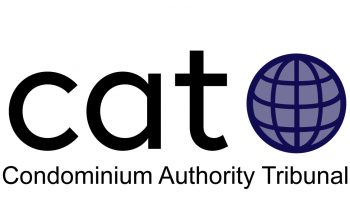 December 2020
December 2020
With people living in close proximity as they do in a high-rise community, disagreements are bound to arise. With Condominium Authority Tribunal (CAT) having expanded the type of disputes within their jurisdiction, fewer disagreements will be resolved through the courts.
CAT is a specialized tribunal offering a formal dispute resolution process outside of the court system for certain condominium-related disputes. In Ontario, the Condominium Act, 1998 requires disputes regarding the condo corporation declaration, by-laws or rules to be filed for mediation and, if necessary, arbitration. Increasingly, these disputes must proceed through CAT.
Legal action should never be a preferred course of action. The act of going to court is adversarial and not designed to facilitate good relations among those who live in a community setting. Filing a lawsuit can be difficult, expensive and time-consuming.
The Condo Authority Tribunal has recently moved forward in putting this tenet into practice. The cost, time and money of the court system, which can take months or years to resolve a dispute, can be avoided by first turning to mediation. Mediation is an informal and confidential process where a third party seeks to negotiate resolution to a dispute acceptable to all parties. A trained mediator, who manages the process, attempts to find common ground and solutions that address all concerns. Successful mediation is one where there is a settlement agreed upon by all parties. When mediation is unsuccessful arbitration, which is binding on both parties, becomes the preferred solution.
The process of having condominium corporations represented by a lawyer, and another lawyer representing the other party, is expensive and a cause of conflict. Lawyers benefit financially regardless who wins. The system is designed such that there is typically a winner and loser while both parties pay lawyers for services. Opportunities for compromise are reduced when a winner and loser are determined by the process.
Mediation does not seek to make one party winner and another party the loser. It seeks to obtain a solution that is fair, reasonable and respectful. Its’ intent is to allow neighbours to continue to interact without continued animosity and ongoing conflict. Mediation and arbitration also differ from legal action in that lawyers are not required to be involved so the cost to both parties can be lower.
The Condo Authority Tribunal seeks to change how disputes are resolved while reducing community conflict and cost. While they have been slow in moving forward and may have problems with the process, the end result is worthy if they are successful.
For matters not under the jurisdiction of the CAT, independent mediators remain a preferred option.







